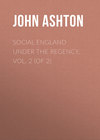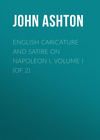Kitabı oku: «The Devil in Britain and America», sayfa 8
CHAPTER XI
How a Witch was made – Her Compact with the Devil – Hell Broth – Homage and Feasting – The Witches’ Sabbat
But how did a woman become a witch, and attain to the full possession of her wicked powers? There is no doubt but that she must have been a mauvais sujet to start with, or else the Devil would not have thought of meeting her, and introducing himself to her. According to the witches’ confessions, of which we shall have many, they generally first meet the Devil by chance, and their differing testimonies affirm that he was somewhat protean in shape, appearing to one as a great black man, to another in the form of some animal. Others, again, were regularly introduced to him by some perfected witch at one of their meetings, for it was part of their duty to beat up recruits for his Satanic majesty.
Their agreement with the Devil is forcibly described by Reginald Scot,29 who quotes as his authorities such crushing names as the ‘Malleus Maleficarum,’ Bodin, Nider, Danæus, Psellus, Erastus, Hemingius, Cumanus, Aquinas, Bartholomæus Spineus, etc., so that doubtless he is correct.
‘The order of their bargaine or profession is double; the one solemne and publike; the other secret and priuate. That which is solemne or publike, is where witches come togither at certaine assemblies, at the times prefixed, and doo not onelie see the diuell in visible forme; but confer and talke familiarlie with him. In which conference the diuell exhorteth them to obserue their fidelitie unto him promising them long life and prosperitie. Then the witches assembled, commend a new disciple (whom they call a nouice) unto him; and, if the diuell findeth that young witch apt and forward in renunciation of the christian faith, in despising anie of the seuen sacraments, in treading upon Crosses, in spitting at the time of the elevation, in breaking their fast on fasting daies, and fasting on sundaies, then the diuell giveth foorth his hand, and the nouice ioining hand in hand with him, promiseth to obserue and keepe all the diuel’s commandements.
‘This done the diuell beginneth to be more bold with hir, telling hir plainelie, that all this will not serue his turne; and therefore requireth homage at hir hands: yea, he also telleth hir, that she must grant him both hir bodie and soule to be tormented in everlasting fire, which she yeeldeth unto. Then he chargeth her, to procure as many men, women and children also, as she can, to enter into this societie. Then he teacheth them to make ointments of the bowels and members of children, whereby they ride in the aire, and accomplish all their desires. So as, if there be anie children unbaptised, or not garded with the signe of the crosse, or orisons; then the witches may and doo catch them from their mothers sides in the night, or out of their cradles, or otherwise kill them with their ceremonies; and, after buriall, steale them out of their graves, and seeth them in a caldron, untill their flesh be made potable. Of the thickest whereof they make ointments, whereby they ride in the aire; but the thinner potion they put into flaggons, whereof whosoever drinketh, observing certeine ceremonies, immediatlie becommeth a maister, or rather, a mistresse in that practise and facultie.’
But there were other hell broths used by witches, as we may see by the accompanying illustration from Molitor’s ‘Die Hexen’ (1489?), in which a cock and serpent form part of the ingredients of the broth, which is being brewed during a violent hailstorm. In ‘The Witch: a Tragi-comedie,’ by Thomas Middleton, we have good notices of the component parts of these mixtures:
‘Heccat. Goe feed the vessell for the second houre.
Stadlin. Where be the magical herbes?
Hec. They’re downe his throate.
His mouth cramb’d full; his eares, and nosthrills stufft.
I thrust in Eleoselinum – lately
Aconitum, frondes populeus, and soote,
Then Sium, Acharum, Volgaro too,
Dentaphillon, the blood of a flitter-mouse,30
Solanum somnificum, et oleum.’
We all know the Witches scene in ‘Macbeth,’ but few are probably aware to what extent Shakespeare was indebted to this play of Middleton’s for its telling effect and language.
‘Heccat. Give me some lizard’s braine: quickly, Firestone.
Where’s grannam Stadlin, and all the rest o’ th’ sisters?
Firestone. All at hand, forsooth.
Hec. Give me Marmaritin; some Bear-Breech; when?
Fire. Heer’s Bear-breech, and lizard’s braine, forsooth.
Hec. Into the vessell;
And fetch three ounces of the red-haired girle
I kill’d last midnight.
Fire. Whereabouts, sweet Mother?
Hec. Hip; hip or flanck. Where is the Acopus?
Fire. You shall have Acopus, forsooth.
Hec. Stir, stir about; whilst I begin to charme.
A CHARME SONG, ABOUT A VESSEL
Black spiritts, and white; Red spiritts and gray;
Mingle, mingle, mingle, you that mingle may.
Titty, Tiffin, keepe it stiff in;
Fire-drake, Puckey, make it luckey;
Liard, Robin, you must bob in.
Round, around, around, about, about.
All ill come running in, all good keepe out!
1 Witch. Heer’s the blood of a bat.
Hec. Put in that; oh put in that.
2 Witch. Heer’s libbard’s bane.
Hec. Put in againe.
1 Witch. The juice of toad; the oile of adder.
2 Witch. Those will make the yonker madder.
Hec. Put in; there’s all, and rid the stench.
Fire. Nay, heer’s three ounces of the red-haired wench.
All. Round, around, around, about, about.
All ill come running in, all good keepe out!
Hec. So, soe, enough: into the vessell with it.
There, ’t hath the true perfection: I am so light
At any mischief; there’s no villany
But is a tune methinkes.
Fire. A Tune! ’tis to the tune of dampnation then, I warrant
You that that song hath a villainous burthen.
Hec. Come my sweet sisters; let the aire strike our tune,
Whilst we show reverence to yond peeping moone.
Here they daunce. The Witches daunce and Ext.’
After this introduction to and instruction from the Devil, the novice has to do homage to her master. Still quoting Reginald Scot:
‘Sometimes their homage, with their oth and bargaine is receiued for a certeine number of yeares; sometimes for euer. Sometimes it consisteth in the deniall of the whole faith, sometimes in part. The first is, when the soule is absolutelie yeelded to the Diuell and hell fier; the other is, when they have but bargained to obserue certeine ceremonies and statutes of the Church; as to conceale faults at shrift, to fast on sundaies, &c. And this is doone, either by oth, protestation of words, or by obligation in writing, sometimes sealed with wax, sometimes signed with bloud, sometimes by kissing the Diuell’s bare buttocks; as did a Doctor called Edlin, who (as Bodin saith) was burned for witchcraft.
‘You must also understand, that after they have delicatlie banketted with the Diuell and the ladie of the fairies; and have eaten up a fat oxe, and emptied a butt of malmesie, and a binne of bread, at some nobleman’s house, in the dead of night, nothing is missed of all this in the morning. For the ladie Sibylla, Minerua, or Diana, with a golden rod striketh the vessell and the binne, and they are fullie replenished againe. Yea, she causeth the bullock’s bones to be brought and laid togither upon the hide, and lappeth the foure ends thereof togither, laieing her golden rod thereon; and then riseth up the bullocke againe, in his former estate and condition: and yet, at their returne home, they are like to starve for hunger; as Spineus saith. And this must be an infallible rule, that euerie fortnight, or at the least, euerie moneth, each witch must kill one child, at the least, for hir part.
********
‘And this is to be noted, that the inquisitors affirme, that during the whole time of the witch’s excourse, the Diuell occupieth the roome and place of the witch, in so perfect a similitude, as hir husband in his bed, neither by feeling, speech, nor countenance can discerne hir from his wife. Yea, the wife departeth out of hir husbands armes insensiblie, and leaueth the Diuell in her roome visiblie.’
The novice is now a full-fledged witch, and according to the best authorities may, and must, commit certain crimes, of which the following are some:
‘They denie God, and all religion.
‘They cursse, blaspheme, and provoke God with all despite.
‘They give their faith to the diuell, and they worship and offer sacrifice to him.
‘They doo solemnelie vow and promise all their progenie unto the diuell.
‘They sacrifice their owne children to the diuell before baptisme, holding them up in the aire unto him, and then thrust a needle into their braines.
‘They burne their children when they have sacrificed them.
‘They sweare to the diuell to bring as manie into that societie, as they can.
‘They sweare by the name of the diuell.
‘They boile infants (after they have murthered them unbaptized) untill their flesh be made potable.
‘They eate the flesh and drinke the bloud of men and children openlie.
‘They kill men with poison.
‘They kill men’s Cattell.
‘They bewitch men’s corne, and bring hunger and barrennes into the countrie; they ride and flie in the aire, bring stormes, make tempests, &c.’
Scot, quoting Sprenger, gives yet a wider range to the wickedness of witches.31 ‘Although it be quite against the haire, and contrarie to the diuel’s will, contrarie to the witch’s oth, promise, and homage, and contrarie to all reason that witches should helpe anie thing that is bewitched; but rather set forward their Maister’s businesse; yet we read In Malleo Maleficarum, of three sorts of witches; and the same is affirmed by all the writers hereupon, new and old. One sort, they say, can hurt and not helpe, the second can helpe and not hurt, the third can both helpe and hurt. And, among the hurtful witches, he saith there is one sort more beastlie than any kind of beasts, saving woolues: for these usuallie deuoure and eate yong children and infants of their owne kind. These be they (saith he) that raise haile, tempests, and hurtfull weather; as lightening, thunder, &c. These be they that procure barrennesse in man, woman and beast. These can throwe children into waters, as they walke with their mothers, and not be seene. These can make horses kicke, till they cast their riders. These can so alter the mind of iudges, that they can haue no power to hurt them. These can procure to themselves and to others, taciturnitie and insensibilitie in their torments. These can bring trembling to the hands, and strike terror into the minds of them that apprehend them. These can manifest unto others, things hidden and lost, and foreshow things to come; and see them as though they were present. These can alter men’s minds to inordinate love or hate. These can kill whom they list, with lightening and thunder. These can take awaie man’s courage, and the power of generation. These can make a woman miscarrie in childbirth, and destroie the child in the mother’s wombe, without any sensible meanes either inwardlie or outwardlie applied. These can, with their looks, kill either man or beast.’
CHAPTER XII
Familiar Spirits – Matthew Hopkins, the ‘Witch-finder’ – Prince Rupert’s dog Boy – Unguents used for transporting Witches from Place to Place – Their Festivities at the Sabbat
In order to enable the witch to carry out her benevolent intentions, the Devil supplied her with one or more familiar spirits, of which we shall hear much in the accounts of cases of witchcraft, and in this old English illustration we see the Devil presenting one to a young witch. They were of all kinds of shapes – perhaps the commonest was a cat or dog; but sometimes they took strange forms.
These familiars could talk and hold conversations with their mistresses, as witness the following story told by Giffard. A witch had confessed she had killed a man. ‘And upon the ladder she seemed very penitent, desiring all the world to forgive her. She sayd she had a spirit in the likeness of a yellow dun Cat. This Cat came unto her, as she sayd, as she sat by her fire, when she was fallen out with a neighbour of hers, and wished that the vengeance of God might light upon him and his. The Cat bad her not be afraid, she would do her no harme, she had served a dame five yeares in Kent, that was now dead, and if she would, she would be her servant. And whereas, sayd the Cat, such a man hath misused thee, if thou wilt I will plague him in his cattell. She sent the Cat, she killed three hogs and one Cow. The man, suspecting, burnt a pig alive, and, as she sayd, her Cat would never go thither any more. Afterward, she fell out with that Man; she sent her Cat, who told her, that she had given him that, which he should never recover; and, indeed, the man died.’32
In ‘The Lawes against Witches and Coniuration,’ etc., the attention of justices of the peace is thus directed to these familiar spirits:
‘1. These Witches have ordinarily a familiar, or spirit, which appeareth to them; sometimes in one shape, sometimes in another, as in the shape of a Man, Woman, Boy, Dogge, Cat, Foale, Fowle, Hare, Rat, Toad, etc. And to these their spirits they give names, and they meet together to christen them.
‘2. Their said Familiar hath some big or little teat upon their body, where he sucketh them; and besides their sucking, the Devil leaveth other marks upon their bodies, sometimes like a Blew-spot, or Red-spot, like a flea-biting, sometimes the flesh sunk in and hollow, all which, for a time, may be covered, yea, taken away, but will come againe to their old forme; and these the Devil’s markes be insensible, and being pricked will not bleed; and be often in their secret parts, and therefore require diligent and carefull search…
‘So likewise, if the suspected be proved to have been heard to call upon their Spirit, or to talk to them, or of them, or have offered them to others.
‘So, if they have been seen with their Spirits, or seen to feed something secretly, these are proofes that they have a familiar, &c.’
Matthew Hopkins (of whom more anon) was a past master in the matter of familiars, and thus relates his experience of some of them.33 He is supposed to be asked where he had gained his experience.
‘The Discoverer never travelled far for it, but in March 1644, he had some seven or eight of that horrible sect of Witches living in the Towne where he lived, a Towne in Essex called Maningtree, with divers other adjacent Witches of other towns, who every six weeks, in the night (being alwayes on the Friday night) had their meeting close by his house, and had their severall solemne sacrifices there offered to the Devill, one of which this discoverer heard speaking to her Imps one night, and bid them goe to another Witch, who was thereupon apprehended, and searched by women, who for many yeares had knowne the Devill’s marks, and found to have three teats about her, which honest women have not; so upon command from the Justice, they were to keep her from sleep, two or three nights, expecting in that time to see her familiars, which the fourth night she called in by their severall names, and told them what shapes, a quarter of an houre before they came in, there being ten of us in the roome; the first she called was:
‘1. Holt, who came like a white kitling.
‘2. Jarmara, who came in like a fat Spaniel, without any legs at all; she said she kept him fat, for she clapt her hand on her belly, and said he suckt good blood from her body.
‘3. Vinegar Tom, who was like a long-legg’d Greyhound, with an head like an Oxe, with a long taile and broad eyes, who, when the discoverer spoke to, and bade him goe to the place provided for him and his Angels, immediately transformed himselfe into the shape of a child of foure yeeres old, without a head, and gave halfe a dozen turnes about the house, and vanished at the doore.
‘4. Sack and Sugar, like a black Rabbet.
‘5. Newes, like a Polcat. All these vanished away in a little time. Immediately after, this Witch confessed several other Witches, from whom she had her Imps, and named to divers women where their markes were, the number of their Marks, and Imps, and Imps’ names, as Elemanzer, Pyewacket, Peck in the Crown, Grizzel Greedigut, &c., which no mortall could invent.’
Witches, however, were not the sole proprietors of familiar spirits, for the Roundheads declared that Prince Rupert had one, in the shape of a large white poodle dog, a present from Lord Arundel, whose name was Boy. Boy accompanied his master in many an engagement, but seemed to bear a charmed life, even having the credit given him of catching bullets and bringing them to his master. This evidently must be a dog of no common breed, and it was not thought so, as we read in one of the Commonwealth tracts, which was a reputed dialogue between Tobie’s and Prince Rupert’s dogs:
‘Tobie’s Dog. … I heare you are Prince Rupert’s White Boy.
P. Rup. Dog. I am none of his White Boy, my name is Puddle.
Tob. Dog. A dirty name, indeed, you are not pure enough for my company; besides, I hear on both sides of my eares that you are a Laplander, or Fin Land Dog, or, truly, no better than a Witch in the shape of a white Dogge.
********
P. Rup. Dog. No, Sirrah, I am of high Germain breed.
Tob. Dog. Thou art a Reprobate and a lying Curre; you were either whelpt in Lapland, or in Finland; where there is none but divells and Sorcerers live.’
Poor Boy met his fate at Marston Moor, by a silver bullet fired ‘by a valliant Souldier, who had skill in Necromancy.’ Judging by the hail of bullets by which he is surrounded, he must indeed have borne a charmed life, the loss of which an old witch deplores.
One of the duties of the familiar was to acquaint the witch with the next meeting between the witches and the Devil. This always (although authorities differ) took place on Fridays, after midnight, and was called the Sabbath or Sabbat. But Scot, quoting Danæus, says: ‘The Divell oftentimes, in the likenes of a sumner, meeteth them at markets and Faires, and warneth them to appeare in their assemblies, at a certaine houre in the night, that he may understand whom they have slaine, and how they have profited.’
But these meetings might be many miles distant, and, consequently, the witches had to be provided with means of conveyance; which was effected with the aid of an unguent, as to the composition of which authorities vary. This was rubbed over the body, or upon a broomstick or dungfork, and hey, presto! they were in mid-air. But they must not make their exit by the door, only by such illegitimate ways as the chimney or the keyhole. Or, as we see, a wizard might mount his cat, or a witch a sheep; or, if a great favourite, the Devil himself would carry her, taking the form of a he-goat, in which shape he frequently presided at the Sabbat.
The broomstick was the orthodox old English style of aërial courses; but, as I have before said, an unguent was necessary. In ‘The Witch,’ before quoted, Heccat says:
‘Here take this unbaptized brat:
Boile it well; preserve the fat;
You know ’tis pretious to transfer
Our ’noynted flesh into the ayre,
In moonelyght nights, on steeple topps,
Mountains, and pine trees, that like pricks or stopps,
Seeme to our height, high towres, and roofes of princes
Like wrinckles in the earth.’
Scot, on the authority of John Bapt. Neap, gives the following recipes for ointments, which are singularly like those in ‘The Witch’:
‘℞. The fat of yoong children, and seeth it with water in a brasen vessell, reseruing the thickest of that which remaineth boiled in the bottome, which they laie up and keepe, untill occasion serueth to use it. They put hereunto Eleoselinum, Aconitum, Frondes populeas, and Soote.’
Another receipt to the same purpose.
‘℞. Sium, acarum vulgare, pentaphyllon, the blood of a flitter mouse, solanum somniferum and oleum. They stampe all these togither, and then they rubbe all parts of their bodies exceedinglie, till they looke red, and be verie hot, so as the pores may be opened, and their flesh soluble and loose. They ioine herewithall either fat, or oil in steed thereof, that the force of the ointment maie the rather pearse inwardly, and so be more effectuall. By this means (saith he) in a moonlight night they seeme to be carried in the aire.’
Thus, then, their means of conveyance being assured, they all meet together, at some appointed place, it may be hundreds of miles away – in a social congress of a very mixed character, Continental writers giving a fuller and more detailed report of their transactions than do the English. One Henri Boguet, a French Grand Juge, in his ‘Discours des Sorciers,’ Lyons, 1608, is particularly lucid on this subject.
He says that at this assembly the first thing the witches do is to adore Satan, who appears in the form, either of a huge black man or as a he-goat, and by way of doing homage to him they offer him candles which burn with a blue flame, and kiss his back, some kissing his shoulders. Sometimes he holds a black image which the witches kiss, at the same time offering a candle or burning brand which they light at a candle, which the Devil carries between his horns. They next proceed to dance a curious circular dance, in which they are placed back to back, whilst the lame witches incite them to leap and dance. The music of the hautboy is not wanting, someone always being found who will thus oblige the company, besides which Satan himself sometimes plays the flute; but if no orchestra is forthcoming, the witches and devils sing each their own song, making a sort of ‘Dutch medley.’ Sometimes they dance two and two, at other times they perform pas seuls, but always in confusion, and they dance back to back, so that they may not be recognised; indeed, it is for that reason that they hold their assemblies at night.
After the dance they break into couples, and indescribable orgies take place.
The next part of the programme is a banquet, composed of different kinds of viands, according to the place of meeting and the quality of the guests; but, according to the illustrations, the pièce de résistance was a dead child. The table was covered with butter, cheese, and meat, and according to some authorities a large copper was provided, from which each witch could take her meat. They drank wine out of wooden goblets, but the chief drink was water. But at these feasts there was never any salt, because it is an emblem of immortality, which the Devil hates more than anything. Besides, it is put in holy-water, and the Apostles were called the ‘salt of the earth’ – sufficient reasons to disgust any Devil.
Before commencing the meal, and on finishing it, the witches say grace – not exactly as we do, but paraphrasing the benediction, filling it with blasphemies, and making Satan author and preserver of all things. And it is a curious thing that all authorities agree that the viands served at these feasts have no flavour or taste, and the meat is only horseflesh; also when the witches rise from table they are as hungry as when they sat down.
This highly unsatisfactory repast being finished, the witches tell Satan what they have done since their last meeting, and those are most welcome who have caused the greatest number of deaths among human beings and cattle, or the most illness, or spoilt most corn; in short, those who have committed the most wickednesses and abominations. The others, who have behaved rather more humanely, are hissed at and mocked by all; they are set on one side, and are often beaten and ill-treated by their master.
They then renew their renunciation of God and the Sacraments of the Church, as also their oath never to speak of God, of the Virgin Mary, or the Saints, unless in mockery and derision; they give up all hope of heaven, and swear that they will always hold him to be their master, and be faithful to him. He then exhorts them to all evil deeds, such as harming their neighbours, making them ill, killing their cattle, and revenging themselves on their enemies, and even uses these words, Revenge yourselves, or you shall die. Moreover, he promises them to lay waste and spoil the fruits of the earth, and gives them powders and ointments for that purpose; at least, he makes them believe so. He also makes them swear solemnly that they should accuse each other, and never reveal anything which had passed between them.
The witches then cause a hailstorm, in order to spoil the crops and the fruit.
But they also celebrate a parody of the Mass, the celebrant being vested in a black chasuble, without a cross on it; and after having put water in the chalice, he turns his back on the altar, and then elevates a slice of black radish instead of the Host, and all the witches cry with a loud voice, ‘Master, help us!’ The Devil at the same time makes sham holy-water, with which he who celebrates the Mass sprinkles the congregation, using a black asperge.
Finally, the Devil, after having taken the form of a he-goat, is consumed by fire, and reduced to ashes, which the witches collect and hide, in order that they may assist them in their diabolical designs.
Of the English Sabbat we shall hear enough when we come to the various cases of witchcraft. Scot quotes Bodin, the great French exponent of witchcraft, ‘who saith, at these magical assemblies the witches never fail to danse, and in their danse they sing these words: Har, har, diuell, diuell, danse here, danse here, plaie here, plaie here, Sabbath, Sabbath. And whiles they sing and danse, euerie one hath a broome in hir hand, and holdeth it up aloft. Item he saith that these night-walking, or rather, night-dansing witches, brought out of Italie into France that danse which is called La Volta.’
He also says that, according to Danæus, if the witches ‘be lame, the diuell deliuereth them a staffe, to conueie them thither inuisiblie through the aire; and that then they fall a dansing and singing of foule songs, wherein he leadeth the danse himselfe; which danse, and other conferences being ended, he supplieth their wants of powders and roots to intoxicate withall; and giueth to euerie nouice a marke, either with his teeth, or with his clawes, and so they kisse the diuell’s bare buttocks, and depart; not forgetting euery daie afterwards to offer to him, dogs, cats, hens, or bloud of their owne.’
In ‘A Pleasant Treatise of Witches,’ London, 1673, we have the following account of the Sabbat: ‘They [witches] are likewise reported to have each of them a Spirit or Imp attending on, and assigned to them, which never leave those to whom they are subject, but assist and render them all the service they command. These give the witches notice to be ready on all solemn appointments and meetings, which are ordinarily on Tuesday or Wednesday night, and then they strive to separate themselves from the company of all other creatures, not to be seen by any; and, night being come, they strip themselves naked, and anoint themselves with their Oyntments. Then they are carryed out of the house, either by the Window, Door, or Chimney, mounted on their Imps in the form of a Goat, Sheep, or Dragon, till they arrive at their meeting-place, whither all the other Wizards and Witches, each one upon his Imp, are also brought. Thus brought to the designed place, which is sometimes many hundred miles from their dwellings, they find a great number of others arrived there by the same means; who, before Lucifer takes his place on his Throne, as King, do make their accustomed homage, adoring and proclaiming him their Lord, and rendring him all Honour.
‘This solemnity being finished they sit to Table, where no delicate meats are wanting to gratifie their appetites, all dainties being brought in the twinkling of an eye, by those spirits that attend the assembly. This done, at the sound of many pleasant instruments (for we must expect no Grace in the company of Devils,) the table is taken away, and the pleasing consort invites them to a Ball; but the dance is strange and wonderful, as well as diabolical, for, turning themselves back to back, they take one another by the arms and raise each other from the ground, then shake their heads to and fro like Anticks, and turn themselves as if they were mad. Then, at last, after this Banquet, Musick, and Ball, the lights were put out…
‘At last, before Aurora brings back the day, each one mounts on his Spirit, and so returns to his respective dwelling place, with that lightness and quickness, that, in little space, they find themselves to be carryed many hundred miles; but are charged by their spirit on the way, not to call in any wise on the name of God, or to bless themselves with the sign of the Cross, upon pain of falling, with peril of their lives, and being grievously punished by their Demon.
‘Sometimes, at their solemn assemblies, the Devil commands that each tell what wickedness he hath committed, and, according to the hainousness and detestableness of it he is honoured and respected with a general applause. Those, on the contrary, who have done no evill, are beaten and punished. At last, when the assembly is ready to break up, and the Devil to despatch them, he publisheth this law with a loud voice, Revenge yourselves, or else you shall dye: then each one, kissing the posteriors of the Devil, returns upon their aiery Vehicles to their habitations.’









